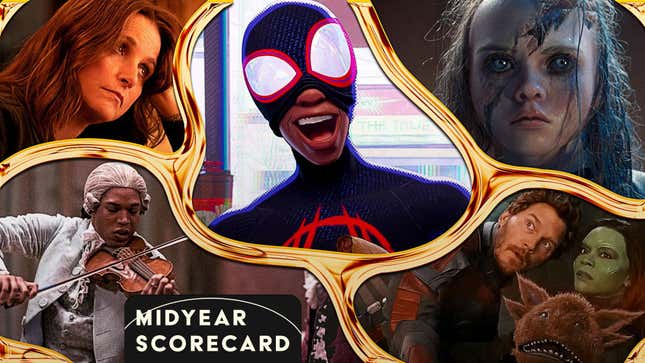
For those who think we’re three years away from re-naming our Midyear Movie Scorecard something like Midyear Ranking of Bloated Sequels or Midyear Ranking of Movies Based on Corporate IP, worry not! The first 182.5 days of 2023 (we had to use a calculator to confirm our math), prove that indie films, festival darlings, period dramas, and genre reinventions haven’t completely disappeared. You just had to scroll down distressingly far to see where they landed on any ranking of 2023 midyear box office results. And you probably had to sign up for a streamer.
When it comes to quality, 2023 has—so far at least—seen solid films from all corners: Director Ben Affleck’s basketball sneaker origin story Air and Nicole Holofcener’s You Hurt My Feelings prove there’s still life in mid-budgeted, easily digestible, and adult-targeted comedies and dramas, while How To Blow Up A Pipeline and Inside show the market for small-scaled, high-achieving cinema isn’t dead yet. Speaking of dead, horror films like M3GAN and Infinity Pool continue the welcome trend of the genre overdelivering on quality. To be fair, though, credit must be given to super heroic pixel delivery systems like Spider-Man: Across The Spider-Verse and Guardians Of The Galaxy Vol. 3, studio sequels that actually tried, which makes our lemming-like parade to the multiplex seem less burdensome.
So while the sky continues to fall on cinema as we’ve known it for the last 100-plus years, great films (we refuse to reductively call them “content”) have not been hard to find this year. With that “glass half full” idea in mind, here’s our alphabetical list of the 24 best films of 2023 so far. Sure, we could have just gone with the numerically alliterative 23 best films of 2023 so far, but 24 is the right number for a pretty solid half year. May the next six months of 2023 prove equally good.